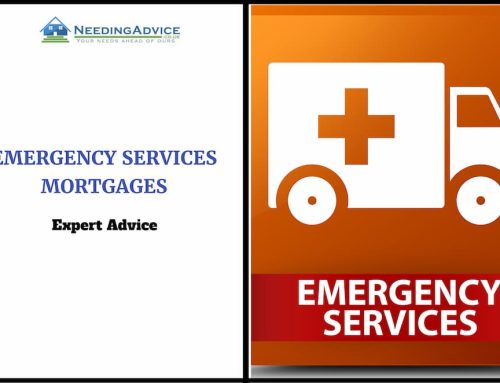Over the years we have received a number of enquires asking for the questions “can I get a mortgage using latest years accounts?”. Most of these enquires are from Self employed applicants looking to purchase a property and the majority are from a limited company.
The answer to this is yes, in most cases you can get a mortgage using latest years accounts. However, it may depend on the lender and you should always check with them prior to applying for a mortgage.
When lenders assess your application they will review your latest year’s accounts to get an insight into your current financial situation. This helps them to assess whether you can afford the mortgage and also helps them to understand the stability of your income.
According to the latest figures from the Office for National Statistics (ONS), there were 5.6 million self-employed people in the UK in 2022, representing 16.2% of the total workforce. This is an increase of 1.9 million self-employed people since 2000.
The prospects for self-employed mortgages remain a keen interest for a significant proportion of the population. However, the market has become more competitive in recent years, with lenders tightening their criteria in response to the rising cost of living and the ongoing economic uncertainty.
Self-employed borrowers can still get mortgages, but they may need to provide more evidence of their income and affordability than employed borrowers. They may also need a larger deposit or have to accept a higher interest rate.
Despite the challenges, there are a number of specialist lenders that offer mortgages to the self-employed. It is important to shop around and compare different offers to find the best deal.
The good news is that the market has changed sufficiently to encourage some – but not all – mortgage lenders to accept just a year’s worth of accounts from a self-employed applicant for a mortgage advance.
Why can it be challenging to find self-employed mortgages?
History suggests that if you are self-employed, you are going to have a harder time getting a mortgage. The problem comes down to the relative difficulty you face in convincing any prospective lender that you have a sufficient and reliable income. If you are self-employed, it is more difficult to provide the type of evidence and proof of income typically required by mortgage lenders.
After the financial crisis of 2008, lenders became even more cautious and risk-averse, making it still more difficult for the self-employed to get sufficiently watertight proof of income. Compared to someone earning their declared income from an employer, the self-employed were instead regarded by mortgage lenders as higher risk.
Indeed, in September 2011 a joint initiative by the Council of Mortgage Lenders (CML) and HM Revenue & Customs was set up to verify the information provided by some mortgage applicants so that further investigations could be made about the accuracy of the details they provided.
This was a time when practically every mortgage lender was likely to request a minimum of two or three years’ audited accounts as proof of a self-employed applicant’s income.
The market response
Despite further caution and checks imposed by the regulator, the Financial Conduct Authority (FCA), the market has evolved and changed in line with changing patterns of employment and earned income – including that from self-employment.
The mortgage industry has necessarily adapted to the stark rise in the sheer number of self-employed in the UK, for instance, and the dynamic and fluid nature of a world in which businesses respond to fast-moving opportunities – and income for the self-employed may fluctuate quite wildly from one year to the next.
Against this background, therefore, there are now more mortgage lenders prepared to assess the affordability and reliability of advances granted to the self-employed on the strength of just one year’s accounts. There are other indicators of the self-employed person’s creditworthiness and the financial standing of his or her business, of course, that may be considered alongside any declared income.
Whereas many lenders might once have required three years’ worth of audited accounts as evidence of a consistent level of income, there is an increasing number of lenders content with just the past year’s accounts.
This flexibility in regard to proof of income is by no means widespread across the whole of the mortgage market. Barclays Bank, for instance, in most cases, continues to insist on proof of income for at least the past two complete tax years if you are self-employed.
In other words, if you are self-employed, with only one year’s worth of accounts to hand, getting specialist assistance from a suitable mortgage adviser makes sense. They will know the most suitable lender for you to apply to, in terms of their lending criteria and them offering an appropriate deal.
Once you have found that lender, you may also discover that an alternative to applying for a mortgage using last year’s accounts may be a simple confirmation from the taxman about the income you earned and the tax you paid – not only last year but in the previous four years.
Provided you have filed the necessary self-assessment tax returns, it is a simple matter to print out the form SA302 confirming your declared income. The HM Revenue & Customs (HMRC) website explains how you can use their online service to print the necessary confirmation (by logging onto your HMRC account)
If you use commercially available software to complete your annual self-assessment tax returns, you may use that programme to print the necessary information about the income you have earned and declared to HMRC in any given year.
In short, once your mortgage broker has found you the most suitable mortgage lender, there is unlikely to be any problem supporting your declared income on the strength of using your latest year’s accounts – or by providing form SA302 which offers official confirmation of your earnings.
Next Steps
As discussed above, the answer to question can i get a mortgage using latest years accounts is yes, you can. However, it is best to seek the advice of a specialist mortgage broker who understands your circumstances and will be able to find the most suitable lender for you to apply to. They will also be able to advise on other indicators of creditworthiness that may be taken into account alongside any declared income when assessing your application for a mortgage.
FAQs
What is the minimum period of self-employment required to qualify for a mortgage?
While many lenders prefer you to have at least two to three years of accounts to offer a mortgage, there are options for those with just one year of self-employment accounts. Each lender has different criteria, so it’s best to shop around.
How much can I borrow if I have one year’s worth of accounts?
The amount you can borrow is generally determined by your income and other financial commitments. Lenders will look at your profit, rather than turnover, and you may be able to borrow up to 4-5 times your annual income. However, this can vary significantly between lenders.
Is it possible to get a mortgage with one year’s accounts if my credit history is poor?
It’s challenging but not impossible. Some specialist lenders may consider your application even with a less-than-stellar credit score. However, you might face higher interest rates or need a larger deposit.
What are the options if I want to borrow more than the standard offering?
If you’re looking to borrow more than what’s typically offered, you’ll likely need to provide additional financial documentation or evidence to support your application. A larger deposit, a guarantorA person who guarantees to repay a mortgage if the borrower ..., or additional collateral may also be required.
Can I refinance my mortgage with just one year’s accounts?
Refinancing with only one year’s accounts might be more difficult but is generally possible. Lenders will look at your current mortgage payment history and overall financial stability before making a decision.
What are the steps to secure a mortgage with one year’s accounts?
The first step is gathering all your financial documentation, including your tax returns, business accounts, and bank statementsA record of a borrower's financial transactions often requir.... Then consult multiple lenders to get a variety of quotes. Remember, independent mortgage brokers can help find the best rates and lenders willing to work with just one year’s accounts.
Is this type of mortgage available if I’ve been self-employed for only one year?
Yes, although your options may be limited compared to someone with a longer history of self-employment. Certain lenders specialise in offering mortgages to those in your situation.
Are there industry or area-specific requirements for this mortgage type?
Generally, the industry or area in which you work shouldn’t significantly impact your mortgage application, unless it’s considered particularly high-risk. However, some lenders might have preferences, so it’s always good to inquire.
Can I still qualify for a mortgage with a bad credit history?
Bad credit isn’t a deal-breaker, but it does make things more complicated. Specialist lenders or subprime mortgages might be the way forward, although you should be prepared for higher interest rates.
What sort of business structure do you have?
Lenders often differentiate between sole traders, partnerships, and limited companies when considering mortgage applications. The way your business is structured can impact how your income is assessed, so it’s important to provide accurate financial statements.







Leave A Comment